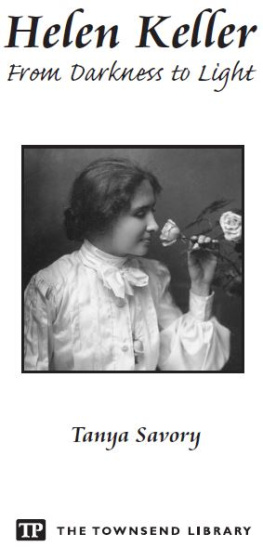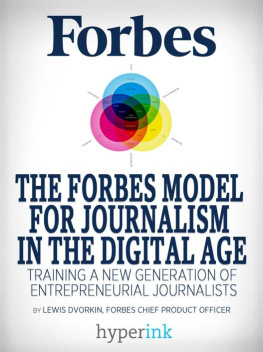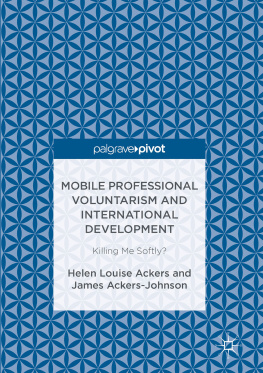Vulnerability in a Mobile World
Vulnerability in a Mobile World
EDITED BY
HELEN FORBES-MEWETT
Monash University, Australia
United Kingdom North America Japan India Malaysia China
Emerald Publishing Limited
Howard House, Wagon Lane, Bingley BD16 1WA, UK
First edition 2020
Selection and editorial matter 2020 Helen Forbes-Mewett. Published under exclusive licence. Individual chapters 2020 respective authors.
Reprints and permissions service
Contact:
No part of this book may be reproduced, stored in a retrieval system, transmitted in any form or by any means electronic, mechanical, photocopying, recording or otherwise without either the prior written permission of the publisher or a licence permitting restricted copying issued in the UK by The Copyright Licensing Agency and in the USA by The Copyright Clearance Center. Any opinions expressed in the chapters are those of the authors. Whilst Emerald makes every effort to ensure the quality and accuracy of its content, Emerald makes no representation implied or otherwise, as to the chapters suitability and application and disclaims any warranties, express or implied, to their use.
British Library Cataloguing in Publication Data
A catalogue record for this book is available from the British Library
ISBN: 978-1-78756-912-6 (Print)
ISBN: 978-1-78756-911-9 (Online)
ISBN: 978-1-78756-913-3 (Epub)
For the vulnerable
Contents
Helen Forbes-Mewett
Helen Forbes-Mewett and Kien Nguyen-Trung
Harry Tan
Allegra Clare Schermuly
Kien Nguyen-Trung
Gianluigi Rotondo
Jiamin Gan and Helen Forbes-Mewett
Anita McDonald-Doh
Bernice Loh
Helen Forbes-Mewett
List of Tables
Chapter 5
Chapter 6
About the Contributors
Helen Forbes-Mewett is Discipline Head of Sociology at Monash University and Deputy Director, Monash Migration and Inclusion Centre. Her work focusses on international students, migration, cultural diversity and social cohesion. Helens books include International Student Security (2010), International Students and Crime (2015) and The New Security: Individual, Community and Cultural Experiences (2018).
Kien Nguyen-Trung is PhD candidate in Sociology, School of Social Science at Monash University, Australia. His work relates to risk, social capital, vulnerability and disaster resilience in Vietnam. His most recent publication is a book chapter Being sacred, being honest: exploring flexible hierarchy in Vietnamese everyday deference rituals published by Springer Nature Singapore.
Harry Tan is a Postdoctoral Fellow in the National University of Singapore, Department of Sociology. His main research areas are homelessness, housing insecurity, marginal populations and addiction issues. As a volunteer, Harry has worked closely with people experiencing homelessness in Singapore since 2012 and in Melbourne from 2015 to 2017.
Allegra Clare Schermuly is Research Fellow in Sociology. Her work explores the challenge for public institutions, such as the police and healthcare, to remain fit for purpose in rapidly changing, multicultural societies and the social inequalities that persist in access to justice and healthcare despite advances in digital technologies.
Gianluigi Rotondo was awarded PhD in 2019 at Monash University, Australia. His work focusses on humanitarian organisations, professional intercultural mediators and communication strategies in the context of migrant and refugee settlement.
Anita McDonald-Doh is a Monash University Arts (Honours) Graduate with a background in Allied Health Assistance. Anitas Sociology Honours thesis (2016) focussed on young peoples perceptions of intercultural relationships, which features as a shortened chapter in the current book. Anita has experience in qualitative research and social advocacy.
Bernice Loh is Postdoctoral Fellow at the Centre for Family and Population Research at the National University of Singapore. She currently researches on children growing up in transnational families in Singapore. Her broad research interests include youth and youth identities, social inequalities and cultural identities.
Jiamin Gan is working as a Research Officer in Singapore. Her work focuses on international students, mental health and psychological support services. Jamie has previously published a co-authored chapter on Singaporean International students perception of mental health in Global Perspectives on International Student Experiences in Higher Education: Tensions and Issues (K. Bista, Ed.).
Acknowledgements
I gratefully acknowledge the contributors of the chapters that comprise this book. These new and emerging authors have shown great scholarship and professionalism through their contributions. Their studies speak volumes of their connectedness with their research participants, who gave their time so generously to provide personal accounts and insights into the topic of vulnerability in a mobile world.
My sincere thanks to Julia Willan and the team at Emerald for their support, efficiency and professionalism.
My special thanks to my colleagues in the School of Social Sciences, the Monash Migration and Inclusion Centre and the Faculty of Arts at Monash University, for providing an exciting and supportive research environment to complete this project.
I am grateful to all who contributed to the postgraduate supervision of these new scholars whose work contributes to a better future for many.
Finally, love and gratitude to my family for supporting me through all stages to complete this book.
Chapter 1
Introduction
Helen Forbes-Mewett
Populations across the world are becoming increasingly mobile. This mobility is for many different reasons including a search for a better and/or safer life, economic or environmental purposes, education or identity formation, among others. While mobility may bring prosperity and better life chances, for some it means experiencing vulnerability. In this book the notion of vulnerability is discussed and applied in different contexts to provide understanding that it means many different things for different people. The notion of vulnerability is presented in both abstract and subjective forms. This book presents a conceptual framework of vulnerability to seven empirically led chapters contributed by different authors.
Due to the broad range of contexts provided by the contributors, Vulnerability in a Mobile World is likely to appeal to a diverse and international audience. The book contributes to the literature on vulnerability in a way that relates to disparate populations, some who seem much more vulnerable than others. The book also contributes to the literature on homelessness, urbanisation and police legitimacy, natural disasters, refugee and asylum seeker support agencies and intercultural communication, international student mental health, intercultural relationships and tween girls and the use of online media. As with my previous book on the New Security: Individual, Community and Cultural experiences (Helen Forbes-Mewett, 2015),













